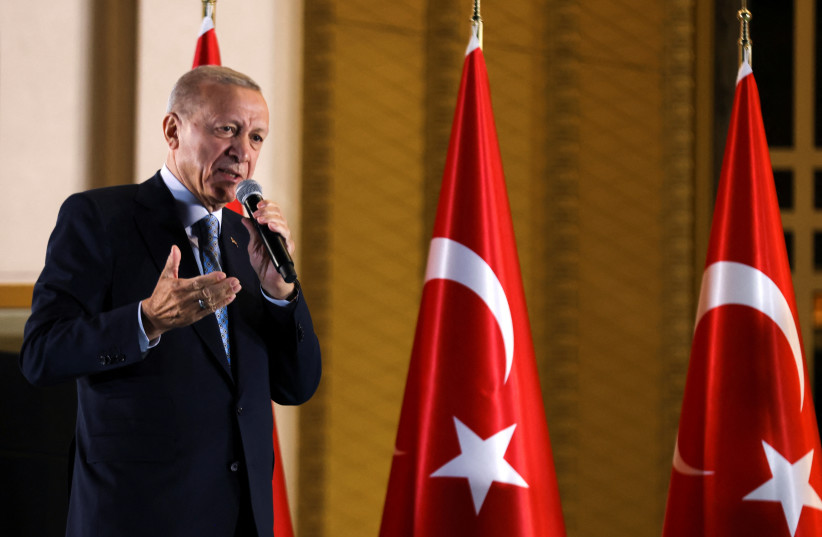After nearly 15 years of hostility following Operation Cast Lead and the events of the Mavi-Marmara, there has been a fundamental change in the relations between Israel and Turkey in the past year. This is a result of the changes in Turkish foreign policy – mainly the renewed adoption of the “zero problems with neighbors” policy.
Indeed, Turkey had a dramatic improvement in its relations with Saudi Arabia, the United Arab Emirates, Egypt and Israel, as well. It is likely that this policy will continue following Erdogan’s victory.
However, the relations between Israel and Turkey are still fragile. The Palestinian issue, especially with regard to Israel’s conduct in the Gaza Strip and in the holy places in Jerusalem, will continue to be a focal point for tensions and disagreements between the two countries. This could, especially in times of crisis and violence, rekindle all the disputes between the countries and the fundamental hostility that exists in the Turkish public towards Israel.
In view of this, the Israeli government needs to adopt a risk management policy, which will take advantage of the opportunity to get the most benefit from the changes in Turkish policy on the one hand but will reduce possible risks on the other hand. Specifically, Israel should work to deepen its ties at the leadership level through reciprocal visits by senior government officials, first and foremost a possible visit of Prime Minister Benjamin Netanyahu.
At the same time, Israel should expand its cooperation on a wide spectrum of issues, while giving special emphasis to the trade and tourism ties between the countries. Furthermore, Israel can take advantage of the traditional rivalry between Turkey and Iran to promote cooperation against the intensifying threat from Iran, while trying to consolidate trilateral cooperation on the issue with Azerbaijan, which is one of Turkey’s closest allies. The new era in relations might be an opportunity for Israel to examine the issue of Hamas activity in its territory with Turkey.

Israel should take into account that relations between the two countries are still in a process of rebuilding trust and that Erdogan may once again change his approach and adopt a hostile policy, as has been previously demonstrated in his harsh statements against Israel over the years. Israel should also be careful that the deepening ties with Turkey has not come at the expense of the strategic relations it has with Cyprus and Greece.
Given these considerations, Israel should be careful while promoting cooperation in sensitive areas, especially in relation to arms deals. In addition and despite the economic temptations and the attractiveness of the Turkish option, Israel should refrain from promoting extensive cooperation with Turkey in the field of gas exports, at least for the time being, because the price of the mistake may be too expensive and lead to significant strategic and economic damages.
The writer is a senior fellow at the Institute for Policy and Strategy (IPS) at Reichman University and a former acting director-general of the Strategic Affairs Ministry.
